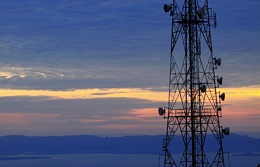Russia is offering the fastest average mobile performance in the world, according to Akamai’s latest State of the Internet report, with one operator offering speeds of 8.9MBps.
The cloud company surveyed speeds at a range of mobile operators during the fourth quarter of 2013. The results were anonymised but the Russian operator held onto its number one position from the third quarter, although it had speeds of 9.5MBps during that time.
An American operator was in third place, with average speeds of 8.5MBps.
Looking at the three largest mobile regions, Asia offered average peak speeds of 43.9MBps across Akamai’s survey, perhaps unsurprising given the volume of LTE Advanced rollouts. Europe was second with 22.2MBps and North America third with 15.4MBps.
The Russian operator that offered the fastest average speeds also had the quickest peak speeds, at 55.5MBps. However, the quickest operator was in Thailand, which offers peak speeds of 208.1MBps.
When it came to average speeds, North America was top with operators offering an average of 4.71MBps with Europe second at 4.06MBps and Asia third at 2.77MBps.
Akamai said there were 22 providers who had average connection speeds above 4MBps or in the broadband range. This increased from 18 operators in the third quarter and double that in the second quarter of last year.
The increase in speeds comes as consumers are using more and more data. According to figures from Ericsson, data traffic increased by around 15 percent between the third and fourth quarters of last year.
The Akamai report also disclosed that Android accounted for 35 percent of requests for traffic on cellular devices, compared to 29 percent for Apple.
However, when traffic from both fixed and cellular networks were taken into account, Apple dominated, with a share of more than 47 percent, compared to Android at 32 percent.



